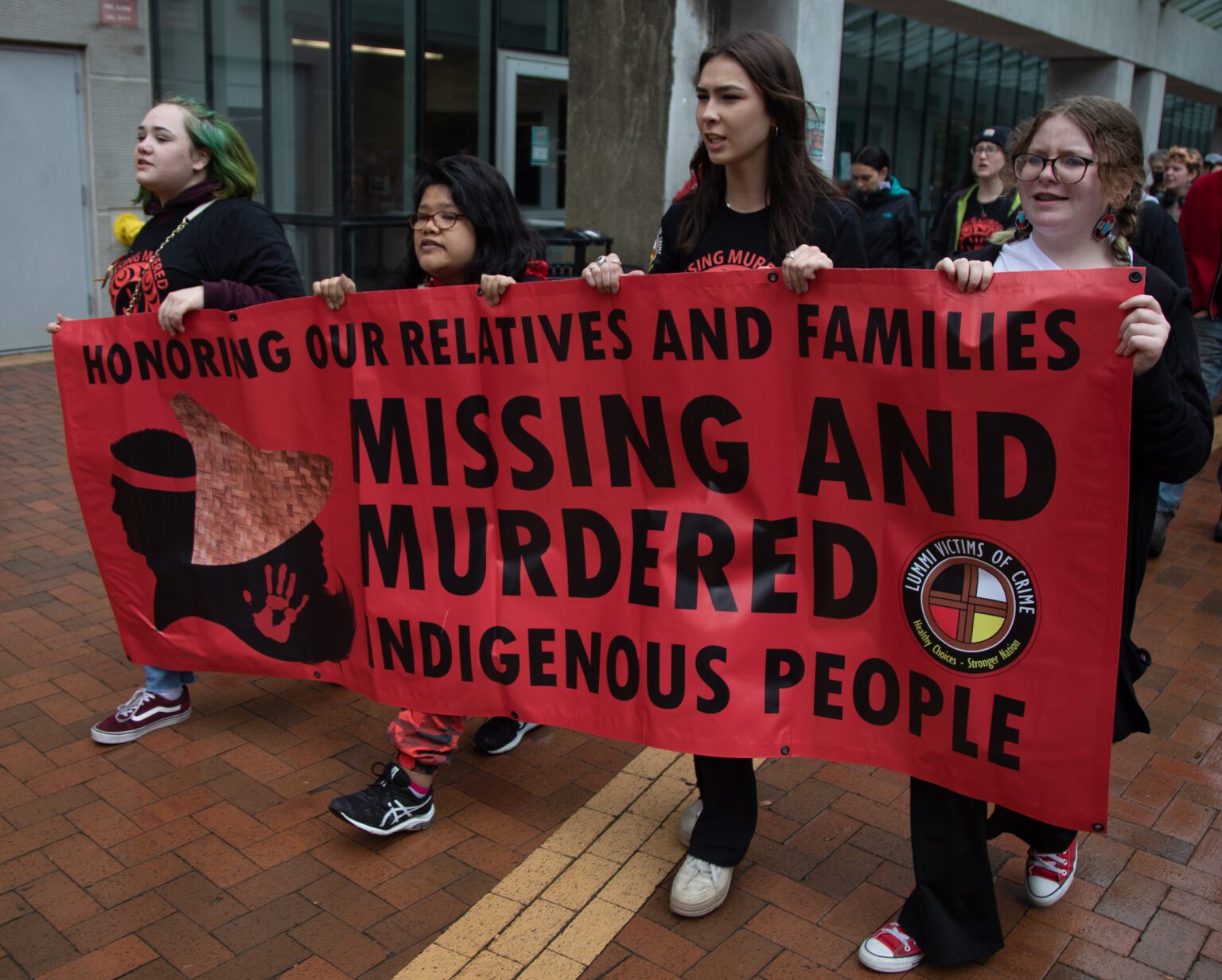Legislative funding for testing unidentified remains in Washington is expected to provide insights for the recently established Missing and Murdered Indigenous Women and People (MMIWP) Cold Case Unit.
The additional $500,000 to fund genetic genealogy testing, supplementing existing state and federal DNA resources, will help investigators clear a backlog of more than 160 unidentified remains in state custody, according to the Attorney General’s Office.
News of the additional funding was welcomed in Whatcom County.
“More resources, more help, it’s always going to be a good thing, especially when we’re in crisis mode of our people going missing,” Lummi Nation Chairman Anthony Hillaire said.
Hillaire said he looks forward to working in collaboration with the unit, as “we’re never going to forget the ones that we’ve lost.”
While officials say there is no way to know which unidentified remains belong to an Indigenous person until they are tested — racial misclassification is a significant problem in some demographic data — the MMIWP Task Force advocated for the funding in its December report.
“DNA testing of individual remains and forensic genetic genealogy are proven strategies to identify missing Indigenous people and bring closure to families,” stated a December release from the Attorney General’s Office, which works closely with the task force. (The Legislature appropriated $561,000 to the AG’s office to support the task force in fiscal year 2024 and $508,000 in fiscal year 2025.)
Indigenous victims represent 5% of the unresolved cases in Washington, while making up less than 2% of the population, according to data from the Homicide Investigation Tracking System in the AG’s Office. The office recognizes that actual disparity is even more significant due to reporting practices, racial misclassification, data collection and jurisdictional issues.
At the task force’s recommendation, the Attorney General’s Office established its MMIWP Cold Case Unit in 2023. The unit, first of its kind in the nation, primarily assists local and tribal law enforcement agencies to solve cases involving Indigenous people.
“We are a new unit blazing a trail for this work inside of an Attorney General’s Office,” said unit leader Brian George, a veteran law enforcement officer and enrolled member of the Port Gamble S’Klallam Tribe. “We want all tribal communities to know their case is important to our cold case unit, and if it is solvable, we want to bring justice and closure to them.”
The new approach relies heavily on building relationships with investigative units throughout the state and trust with tribal communities. For Hillaire, these inner-state relationships are important, but so are those beyond Washington. In his experience, one of the most difficult hurdles in Lummi investigations is navigating various jurisdictions and getting necessary access to case information.
“It gets to the point where we send our officers anywhere around the country just to go look for them, to put up fliers, to support families,” Hillaire said.
Tribes, as sovereign governments, each have their own rules and operations for their archives, which guide how the cold case unit conducts research within the communities, George explained.
“Solving cold cases can be time-consuming and tedious work,” George said. “The first hurdle is locating parties who hold information about the disappearance or murder.”
He explained that the unit is able to leverage technological expertise to assist local investigators in tracking down individuals who might have moved out of the area, as well as apply advanced DNA testing to help crack cold cases.
Forensic genetic genealogy can help law enforcement solve cold cases by combining DNA testing with genealogical research, using publicly available ancestry data. However, the high price tag for the process can be prohibitive, with DNA testing of remains costing about $2,500 and forensic genetic genealogy costing about $8,000.
“Timely DNA testing can bring a measure of closure and help solve more cold cases,” Ferguson said in December.
The Attorney General’s Office was also awarded $1.5 million at the end of November through the federal Emmett Till Cold Case Investigations and Prosecution Program, which supports law enforcement efforts to investigate and prosecute pre-1980 cold cases involving racially motivated crimes or civil rights violations.
“This grant builds upon our nation-leading response to the crisis. It provides resources that are necessary for strengthening tribal partnerships that are critical to seeking justice for victims,” Ferguson said.
The grant opens the door for the office to hire two full-time staff to travel across the state during the next three years, identifying relevant cases. The office said it plans on contracting with a research expert who specializes in tribal archives and a storyteller.
“Contracting with a storyteller is a culturally informed component of the project, recognizing the importance of storytelling in many Indigenous communities to share information and pass on knowledge,” George said.
The efforts will support the MMIWP Cold Case Unit’s work.
Isaac Stone Simonelli is CDN’s enterprise/investigations reporter; reach him at isaacsimonelli@cascadiadaily.com; 360-922-3090 ext. 127.




